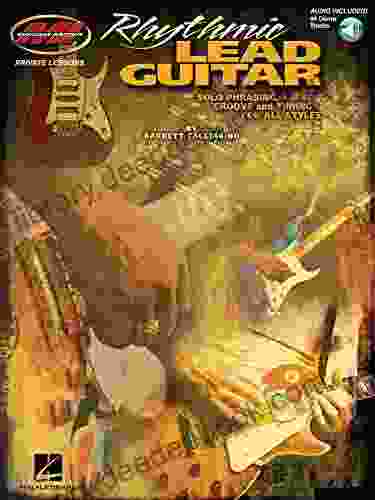Understanding Norm Dynamics in Multilateral Arms Control: Examining the Role of Shared Beliefs and Social Pressures

Multilateral arms control agreements play a vital role in maintaining international peace and security by regulating the production, trade, and use of weapons. These agreements are often based on shared norms that define what is considered acceptable or unacceptable behavior in the realm of arms control. In this article, we will explore the concept of norm dynamics in multilateral arms control, examining the influence of shared beliefs and social pressures on the shaping and maintenance of international norms.
5 out of 5
| Language | : | English |
| File size | : | 1862 KB |
| Text-to-Speech | : | Enabled |
| Screen Reader | : | Supported |
| Enhanced typesetting | : | Enabled |
| Word Wise | : | Enabled |
| Print length | : | 571 pages |
Shared Beliefs and Norms in Arms Control
Norms are widely shared beliefs about appropriate behavior that guide state actions in international relations. In the context of arms control, these norms can relate to the types of weapons that should be banned or limited, the conditions under which weapons can be used, and the obligations of states to comply with arms control agreements.
Shared beliefs among states are essential for the development and maintenance of norms in arms control. These beliefs can be shaped by historical experiences, cultural values, and strategic interests. For example, the shared belief in the catastrophic consequences of nuclear war has led to the development of international norms against the use and proliferation of nuclear weapons.
Social Pressures and Norm Enforcement
In addition to shared beliefs, social pressures play a significant role in the enforcement and maintenance of norms in arms control. These pressures can manifest in various forms, including diplomatic condemnation, economic sanctions, or even military action.
States that violate arms control norms are likely to face social pressure from other states. This pressure can range from diplomatic isolation to economic sanctions or even military intervention. The threat of social ostracism or punishment can incentivize states to comply with arms control norms and avoid actions that could destabilize the international order.
Examples of Norm Dynamics in Arms Control
The interplay between shared beliefs and social pressures can be seen in several examples of multilateral arms control agreements.
Nuclear Non-Proliferation Treaty (NPT)
The NPT is a landmark arms control treaty that prohibits the spread of nuclear weapons to non-nuclear states. The treaty is based on the shared belief that the proliferation of nuclear weapons would increase the risk of nuclear war and threaten global security. The treaty also establishes a system of inspections and sanctions to ensure compliance. The NPT has been signed by over 190 countries, demonstrating the widespread acceptance of the norm against nuclear proliferation.
Chemical Weapons Convention (CWC)
The CWC prohibits the production, stockpiling, and use of chemical weapons. It is based on the shared belief that chemical weapons are inhumane and morally reprehensible. The CWC establishes a strict verification regime to monitor compliance and has played a significant role in eliminating chemical weapons stockpiles worldwide. The treaty has been signed by over 190 countries, indicating a strong international norm against the use of chemical weapons.
Norm dynamics play a crucial role in the effectiveness of multilateral arms control agreements. Shared beliefs about acceptable and unacceptable behavior, coupled with social pressures to enforce these norms, create a framework for cooperation and compliance among states. By understanding the dynamics of norm formation and maintenance, policymakers can design more effective arms control agreements that contribute to international peace and security.
5 out of 5
| Language | : | English |
| File size | : | 1862 KB |
| Text-to-Speech | : | Enabled |
| Screen Reader | : | Supported |
| Enhanced typesetting | : | Enabled |
| Word Wise | : | Enabled |
| Print length | : | 571 pages |
Do you want to contribute by writing guest posts on this blog?
Please contact us and send us a resume of previous articles that you have written.
 Book
Book Novel
Novel Page
Page Text
Text Genre
Genre Reader
Reader E-book
E-book Newspaper
Newspaper Paragraph
Paragraph Sentence
Sentence Glossary
Glossary Bibliography
Bibliography Foreword
Foreword Synopsis
Synopsis Annotation
Annotation Footnote
Footnote Manuscript
Manuscript Tome
Tome Classics
Classics Narrative
Narrative Biography
Biography Autobiography
Autobiography Reference
Reference Dictionary
Dictionary Narrator
Narrator Resolution
Resolution Librarian
Librarian Card Catalog
Card Catalog Stacks
Stacks Archives
Archives Study
Study Research
Research Journals
Journals Reading Room
Reading Room Literacy
Literacy Study Group
Study Group Thesis
Thesis Storytelling
Storytelling Reading List
Reading List Textbooks
Textbooks Helen Rolfe
Helen Rolfe J S Frankel
J S Frankel Byron Babbish
Byron Babbish David Borthwick
David Borthwick K N Hunter
K N Hunter Jasmine Guillory
Jasmine Guillory Charles Simic
Charles Simic Janis Mimura
Janis Mimura Melissa Rossi
Melissa Rossi Carlos Thions
Carlos Thions Emily Mitchell
Emily Mitchell Claudia Kaiser
Claudia Kaiser Michael Myers Shoemaker
Michael Myers Shoemaker Tatiana Boncompagni
Tatiana Boncompagni Bob Hole
Bob Hole C J Hopkins
C J Hopkins William C Lewis
William C Lewis Ketan Joshi
Ketan Joshi Dmitri Levitin
Dmitri Levitin Jal Mehta
Jal Mehta
Light bulbAdvertise smarter! Our strategic ad space ensures maximum exposure. Reserve your spot today!

 Devon MitchellUnveiling the Dark Underbelly: A Comprehensive Guide to New York's Grime and...
Devon MitchellUnveiling the Dark Underbelly: A Comprehensive Guide to New York's Grime and...
 Henry Wadsworth LongfellowBridging the Gap Between Theory and Practice: Baywood Technical...
Henry Wadsworth LongfellowBridging the Gap Between Theory and Practice: Baywood Technical... Robert ReedFollow ·11.2k
Robert ReedFollow ·11.2k Robert FrostFollow ·12.1k
Robert FrostFollow ·12.1k Zadie SmithFollow ·13.6k
Zadie SmithFollow ·13.6k Chuck MitchellFollow ·7.5k
Chuck MitchellFollow ·7.5k Jamison CoxFollow ·4.9k
Jamison CoxFollow ·4.9k Jamie BellFollow ·12.3k
Jamie BellFollow ·12.3k Frank MitchellFollow ·14.8k
Frank MitchellFollow ·14.8k Michael ChabonFollow ·12.7k
Michael ChabonFollow ·12.7k

 Ralph Ellison
Ralph EllisonHealth Care Global Viewpoints: Samantha Whiskey
Samantha Whiskey is a global health...

 Gabriel Garcia Marquez
Gabriel Garcia MarquezTeacher Educators' Reflections on Culturally Relevant...
In today's...

 Levi Powell
Levi PowellSustainable Project Management: The GPM Reference Guide...
In today's rapidly changing world,...

 Isaac Bell
Isaac BellThe Captivating World of "Dreaming Awake Falling Under"
A Journey Through...

 Clarence Brooks
Clarence BrooksGovernance Regulations Valuations Mergers And...
In today's complex and ever-changing...
5 out of 5
| Language | : | English |
| File size | : | 1862 KB |
| Text-to-Speech | : | Enabled |
| Screen Reader | : | Supported |
| Enhanced typesetting | : | Enabled |
| Word Wise | : | Enabled |
| Print length | : | 571 pages |










